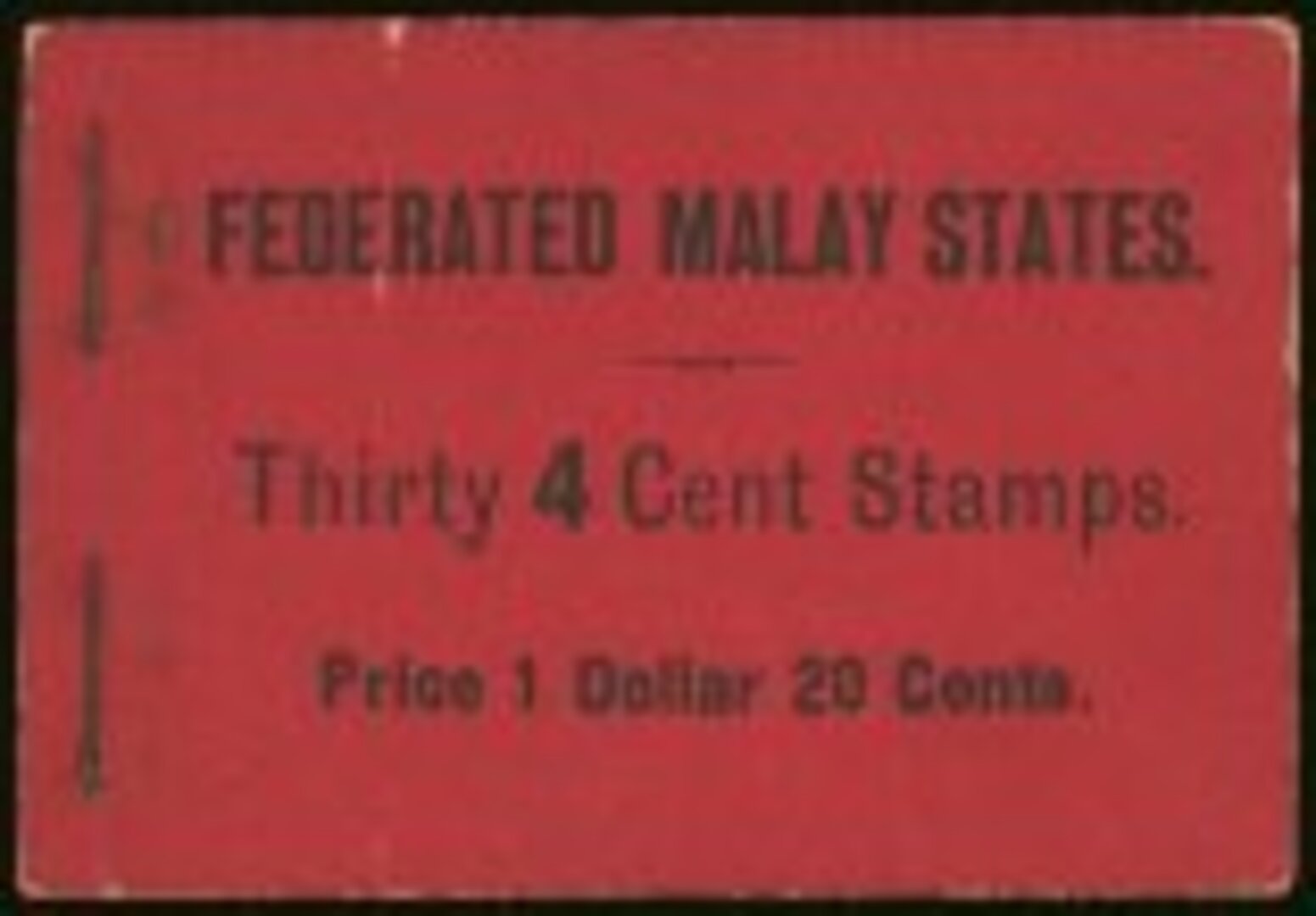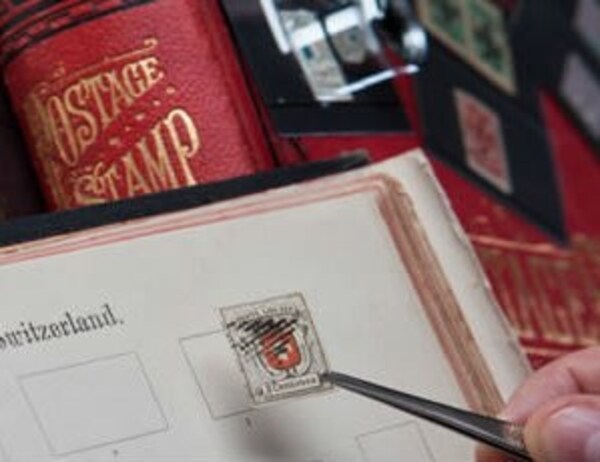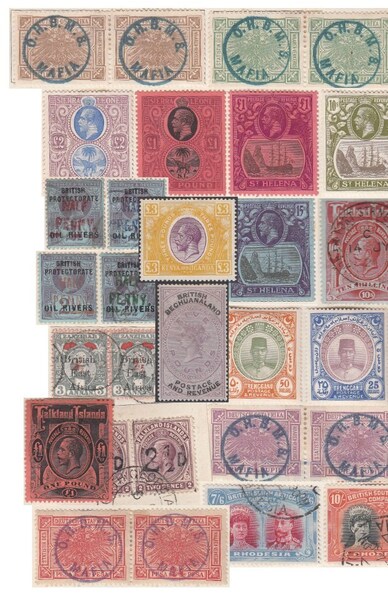Collect the British Empire? Just turn to the back pages of the SG listings and have a look around. What might you find? Sometimes the items listed at the back are as rare & interesting as some of those great classics at the front end of the listings!
Of course we now see Telegraph stamps included in the Part 1 catalogue, some are very rare indeed – and they look great too. Your colony may have some Japanese Occupation issues tucked away back there, and of course most countries have listings of the Official stamps and Postage Dues.
But have you ever had a good look at the booklet listings?
No? Don’t feel bad about it if you haven’t. The old booklets from many colonies are so rare that most collectors are unaware of their existence!
Such booklets are an integral part of British Colonial social history. Apart from providing a convenient source of postage stamps, they were used for commercial purposes to advertise national and local businesses and encourage contact with the countries that formed the British Empire. They are evidence of how philately assisted in the economic development of individual countries.
The historical origins of the postage stamp booklet can be traced back to the early 1870s when private companies in America produced 'Telegraph Stamp' booklets. In Great Britain, after representations from the Post Master General in 1878, Parliament gave approval for booklets but the idea was not pursued further until the beginning of the 20th Century.
The first postage stamp booklet was issued by Luxembourg in 1895. Printed on the face of a rather bland outer paper cover were the words 'Grand-Duche de Luxembourg' with the country's crest and below - 'Carnet de 24 timbres-poste de 5 cts prix fr 1.25'. Inside were four perforated panes comprising six stamps each. The sheets were held between the cover with one large metal staple. This was the precursor to other countries acknowledging their potential. Sweden and America followed shortly afterwards and finally Great Britain in 1904.
Interestingly, Australia a country that had only recently become independent, saw individual States issuing booklets in the same year and the trend was repeated throughout the Empire. Other countries issued booklets as the public responded enthusiastically to the innovation and convenience the booklets offered. The early production techniques involved breaking up full sheets of stamps and manually inserting the smaller individual plates between covers. These crude examples improved as plates were prepared specifically for the manufacture of booklets often with a wide inner margin providing sufficient space to secure the binding by either metal staple, stitching or gum.
Whilst Australia offers an insight into the early development of Colonial booklets, other early issuers include the Straits Settlements, Federated Malay States, Ceylon, K.U.T, Nigeria, British Guiana and Jamaica. One significant difference is that whilst Australia printed their own stamps the majority of other Colonial stamps and booklets were produced by De La Rue in England.
A significant change occurred when the benefit of advertising, using the medium of postage stamp booklets, was fully realised. Firstly, advertising reduced production costs and secondly their importance increased noticeably as local revenue was generated and advertisers took advantage of the opportunities to market goods and services. These included instantly recognisable international company names ranging from Cadbury's Chocolate, Bovril and Imperial Airways to domestic enterprises that provided details of hotels and restaurants. There was now a facility that enabled companies to offer their goods and services to a wide international audience.
One thing is certain, most early British Colonial booklets are difficult to find. At the time of issue they flew somewhat ‘below the radar’ of collectors. Almost without exception they were originally purchased to be used and many, such as several examples we are currently offering, do not come to the market from one year to the next…


 General
General
 General
General
 General
General